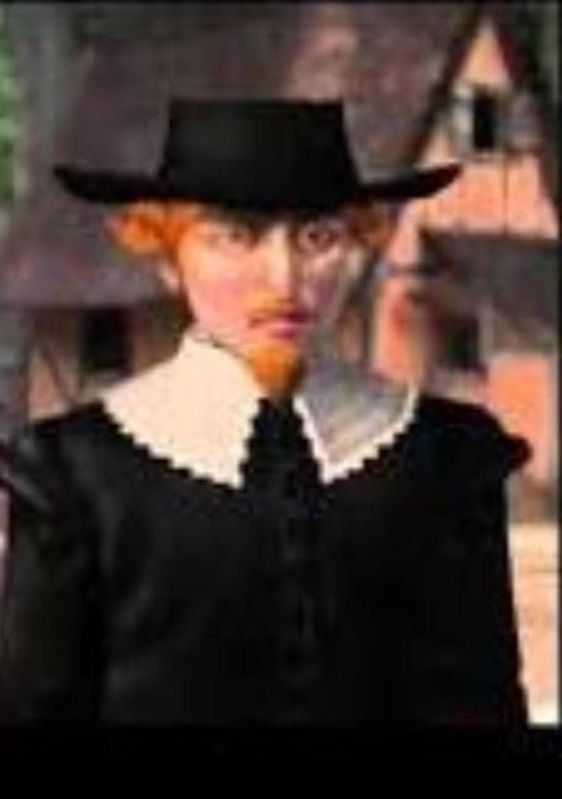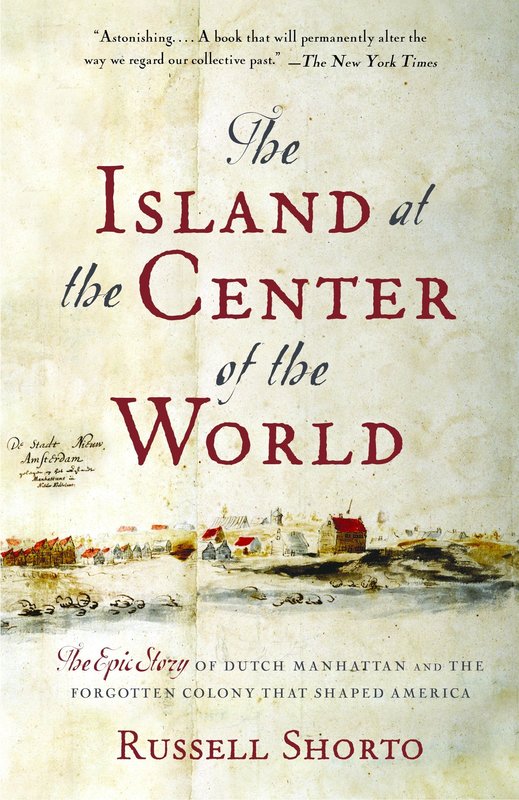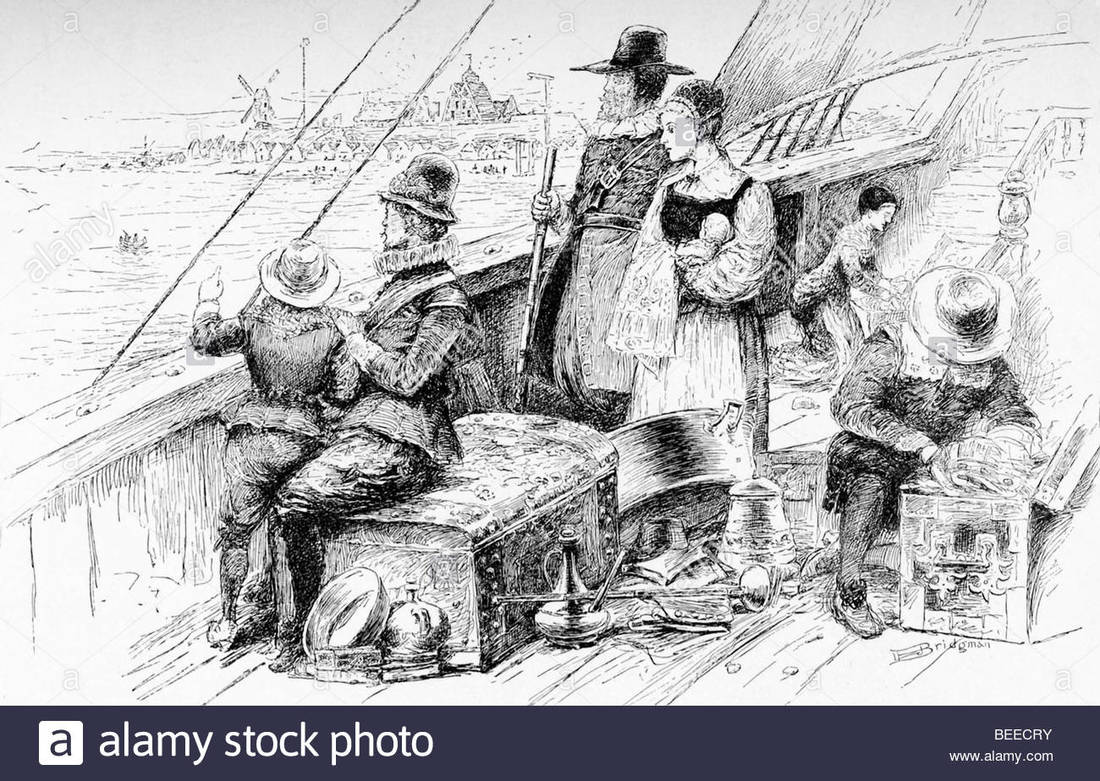|
I’ve been reading a lot of books lately.
I think I know why. My latest has been a gripping history of the first settler to advocate local government and polyglot culture among people he labelled “Americans” -- a new concept in the mid-17th Century. Adriaen van der Donck was perhaps the first “New Yorker” – except that it was still named New Amsterdam in his time. Of course, my discovery is a trifle late. The book, “The Island at the Center of the World,” by Russell Shorto, was first published in 2004. I don’t know how I missed it, until our friends Ina and Maury gave us a copy recently. New Yorkers know the names of Peter Minuit and Peter Stuyvesant, executives sent to the New World to regulate commerce for the Dutch West India Company. Van der Donck, trained in the law, was also sent to New Amsterdam to help the company make more money, but he saw the mélange of Dutch and England, French and Spanish, Africans and Native Americans, and he realized they constituted something far more than company workers. Van der Donck was sent as a lawman to another Dutch region, Fort Orange, now Albany, where he learned Indian languages and encouraged trade and visited their villages. Native Americans were somewhat free to bargain, to visit, to argue and even sue. Why don’t we know more about him, and more about the contribution of Dutch society? For that matter, why don’t we know about the petition signed on Dec. 27, 1657, by 31 English settlers, protesting the persecution of Quakers. (Not one signee was Quaker.) And, while they were speaking up for Quakers, the English protesters proclaimed: “The law of love, peace and liberty in the states extending to Jews, Turks and Egyptians, as they are considered sonnes of Adam, which is the glory of the outward state of Holland, soe (sow? GV) love, peace and liberty, extending to all in Christ Jesus, condemns hatred, war and bondage.” The petition was signed in the Long Island village of Vlissinge, today known as Flushing, the home of the Amazing Mets and a bustling Chinatown and the start of a thriving Korean diaspora moving eastward along Northern Blvd. (the roadway of Tom and Daisy Buchanan.) The Flushing Remonstrance – issued at the end of the time of Adriaen van der Donck -- is one of the great statements in the history of North America. It has rarely been more relevant than now, when “sonnes of Adam” are being separated psychologically, as children are grasped from their parents by agents of an increasingly cruel state. In a way, the current regime led me to read this book about Dutch settlers. The puffy, petulant face of a child tyrant -- as well as his dissonant voice, the President as shrill earworm -- have driven me from the news channels (and the repetitiveness of most commentators, and the commercials for old-age “remedies.”) Lately, I have taken to sitting near the evening music on WQXR-FM and reading books. My wife, as part of her family genealogy studies, just finished “Domesday: a Search for the Roots of England,” issued by Michael Wood in 1986, and also a classic television documentary. One more point about books: one of the heroes of Russell Shorto’s book is Charles Gehring, an American scholar, who has spent much of his career on an un-numbered floor in a state building in Albany, translating historic Dutch handwritten documents into contemporary English. This book adds to my immense respect for scholars like Gehring – and Shorto – and Wood. They help us see ugly times in the 21st Century, in perspective. * * * The Flushing Remonstrance: https://www.nyym.org/flushing/remons.html
bruce
8/14/2018 10:25:48 am
george,
Joshua Rubin
8/14/2018 11:23:41 am
I just finished Shorto's excellent book a few weeks ago! It makes a strong case for the political and cultural imprint that the Dutch settlement left on what became the US.
George Vecsey
8/14/2018 11:33:02 am
Josh, thanks for the suggestion. I will find the book. My wife will be interested because she is tracing both our families 10 centuries and more -- sometimes bisecting in the same parts of Leicestersire and Lancashire. But other parts of Albion were so different, settled by different stock, different tongues, different legal outlooks. Vikings! The fine young Atlanta shortstop Dansby Swanson -- I'd never seen a name Dansby, so I did some on-line research -- is descended from a region of northern England settled by Vikings. (Swanson = son of Sven.) You are right, Vikings, Normans, Saxons, Welsh, Celts....A melange, indeed. GV
Russell Shorto
8/14/2018 11:18:58 am
Thanks, George! You may be interested to learn that Hofstra hosts a conference on Dutch history in America in October. I'll be giving the keynote.
Joshua Rubin
8/14/2018 11:27:51 am
Russell, you may have met my daughter, Olivia, earlier this summer at the Old Stone House in Brooklyn. She was an intern there, and was volunteering (i.e. helping with the food, coffee, etc but also hearing the talks). She is planning on majoring in history at Smith College and, though not a baseball fan, was conducting archival research for the Old Stone House on Washington Park's role in early Brooklyn baseball history. She gave me your book for my birthday.
George Vecsey
8/14/2018 05:52:47 pm
Dear Russell Shorto: Thank you for noticing my site. I did see you are speaking at Hofstra. I worked for the school as an undergraduate and learned to recite a sentence about the Dutch lumber merchants who settled on the plains of Heemestede. Hofstra Hall is still standing -- still in use. I love seeing it when I visit campus. One of our favorite teachers was a lovely man named David Dykstra, who had students in one class (including my wife) do papers about the cusp between the old Dutch and English rule in Connecticut. Can't imagine a better speaker than you to grace that conference. GV
George Vecsey
8/14/2018 11:19:22 am
Bruce: I never gave it much thought, paying more attention to contemporary France, Italy, Spain, Ireland, England. But I noticed that Dutch writers...and athletes....seemed like free spirits (and often seemed to get along with each other, a rare thing in my world.) I have also learned to admire the Dutch for many acts of extreme bravery during WWII -- friend of mine (who has done so well in the USA) is alive because a Christian family hid him on their farm for a few years, while his parents survived in an attic in Amsterdam.
bruce
8/14/2018 02:19:52 pm
george,
Joshua Rubin
8/14/2018 05:18:24 pm
re: "Irish pub in Osaka" 8/14/2018 05:09:54 pm
George—thanks for introducing the Dutch as a topic of discussion. They have had an interesting impact upon many areas of the world.
bruce
8/14/2018 05:30:38 pm
Joshua,
Altenir Silva
8/15/2018 11:14:52 pm
Dear George,
Brian Savin
8/16/2018 08:29:38 am
The Dutch were – and are – a country of traders. They have a fascination with goods. a general appreciation of quality, and have always been mindful that you usually (but not always) get more with honey than vinegar. They provided, of course, the tolerant safe harbor to our founding Pilgrims for years prior to the Mayflower’s voyage from their shores. No self respecting Dutchman would put their feet on an oriental rug – they were too costly -- and every great painting of their glory age showed them being used as decorative tablecloths instead. The Hudson Bay Company never did reach the level of riches of the Dutch East India Company, which perfected the use of contracts, monopolies, armed agents and slaves around the world.
George Vecsey
8/16/2018 09:19:59 am
Brian, knowing your feel for history, I recommend it to you.
George Vecsey
8/22/2018 08:23:12 am
Hello.
John DeWitt
8/22/2018 12:08:01 am
Lucas DeWitt, my great-great-great-great grandfather was reportedly a gun runner for the British during the Revolutionary War. He was based on Staten Island and when the war started going the wrong way, the British navy sailed him and his family up to New Brunswick.
George Vecsey
8/22/2018 08:26:46 am
Dear Mr. DeWitt: The Shorto book convinced me that Americans (New Yorkers, like me) do not know enough about the Dutch heritage.
Marianne Wagner
8/24/2018 12:24:44 pm
My 10th great grandparents came to New York City from Holland in 1630. My 10th great grandmother's name was Anneke Jans. Their farm encompassed part of the area near the WTC and was 62 acres. After her first husband died, she married Everardus Bogardus whose farm was 84 acres right next to hers. There is a small triangular park in Tribeca, Duane Park, and on the fence there is quite a large bronze plaque which has my 10th great grandparents' names and a notation that this is the remnants of their farm. There are a number of books written about Anneke Jans and for those of us who are direct descendants, they are fascinating reading. One tells the take of the longest running law suit in this country - over the Anneke Jans/Bogardus farms.
George Vecsey
8/28/2018 10:49:26 am
Dear Ms. Wagner: Thank you for your note. I am fascinated by people who can trace their history back to such momentous times. I hope the suit goes your way....or maybe it will stretch on for a few more centuries, Best, GV
Edward lacy
8/25/2018 03:23:53 pm
Hello, George. I'm an old Queens boy who (despite a History degree from Lehman College) grew up ignorant of Dutch history in NY and the origin of names like Brooklyn, The Bronx, and Staten Island. Academics and historians toil to inform about this rich/underrepresented history, but still the general public remains unaware. Sometimes, fiction can bring the past to life in ways non-fiction can't - as did Ben-Hur, Shogun, and Catch-22. I've written a historical novel about a Dutch soldier embroiled in the war with Native Americans that began on Manhattan in 1643. I was wondering if you'd like to add it to your reading list? The plot is true to the major historic events while following the struggles of the soldier on a Manhattan Island unrecognizable today. Some of the most remarkable characters and events in the book are authentic. In a sense, they did the heavy lifting for me. It's a debut novel that I'm just beginning to shop for publication.
George Vecsey
8/25/2018 06:02:33 pm
Dear Mr Lacy: thank you for noticing my little site. I'd be honored to receive your book - but i have a backlog of books by friends and cant be sure i could get to it soon i am fascinated by the subject. Could we talk via email? [email protected]. Thank you. GV
Edward Lacy
8/26/2018 11:04:34 am
Thank you, Mr. Vecsey. Yes, it'll allow me to introduce myself more appropriately. Ed. Comments are closed.
|
Categories
All
|












